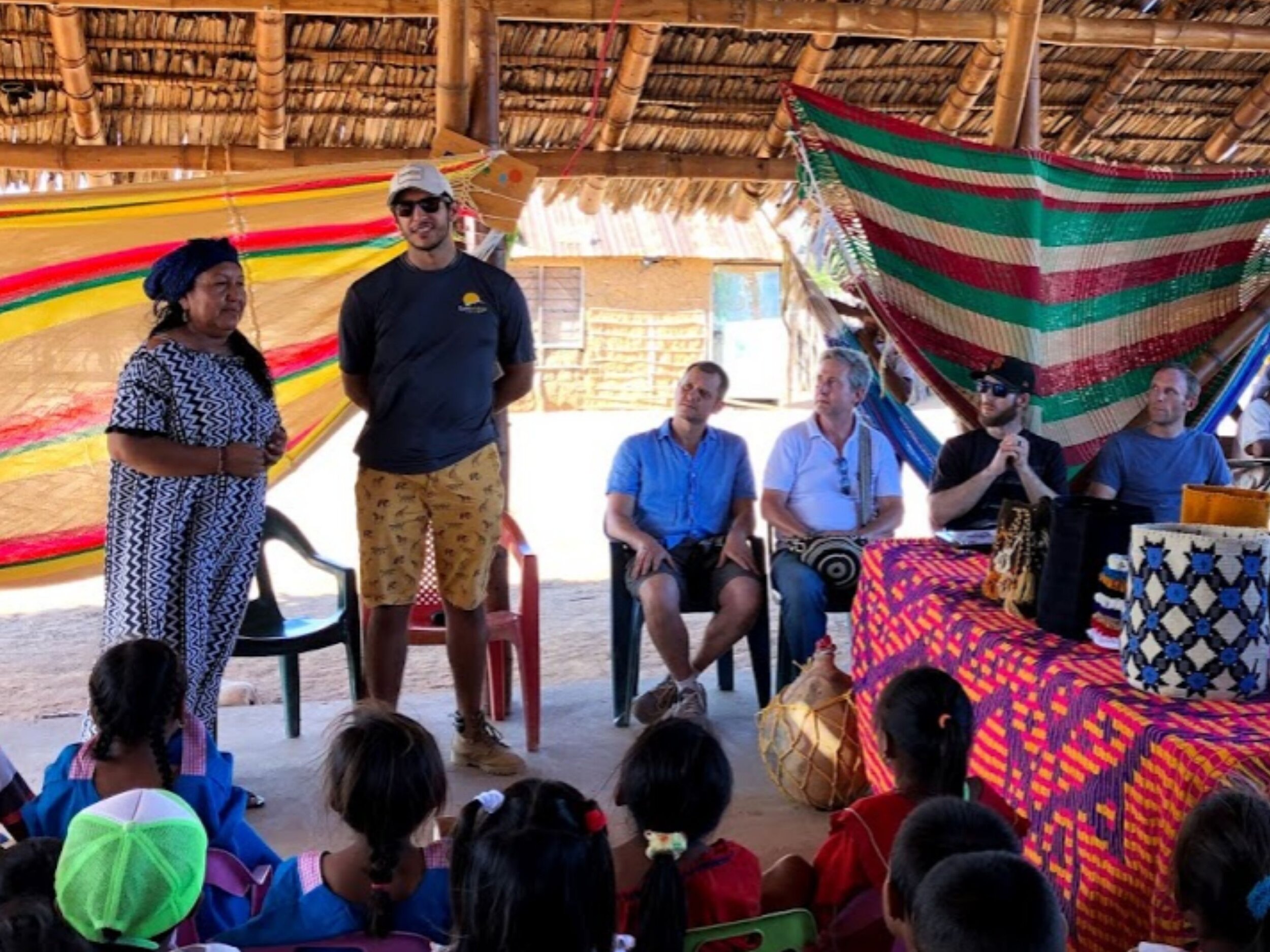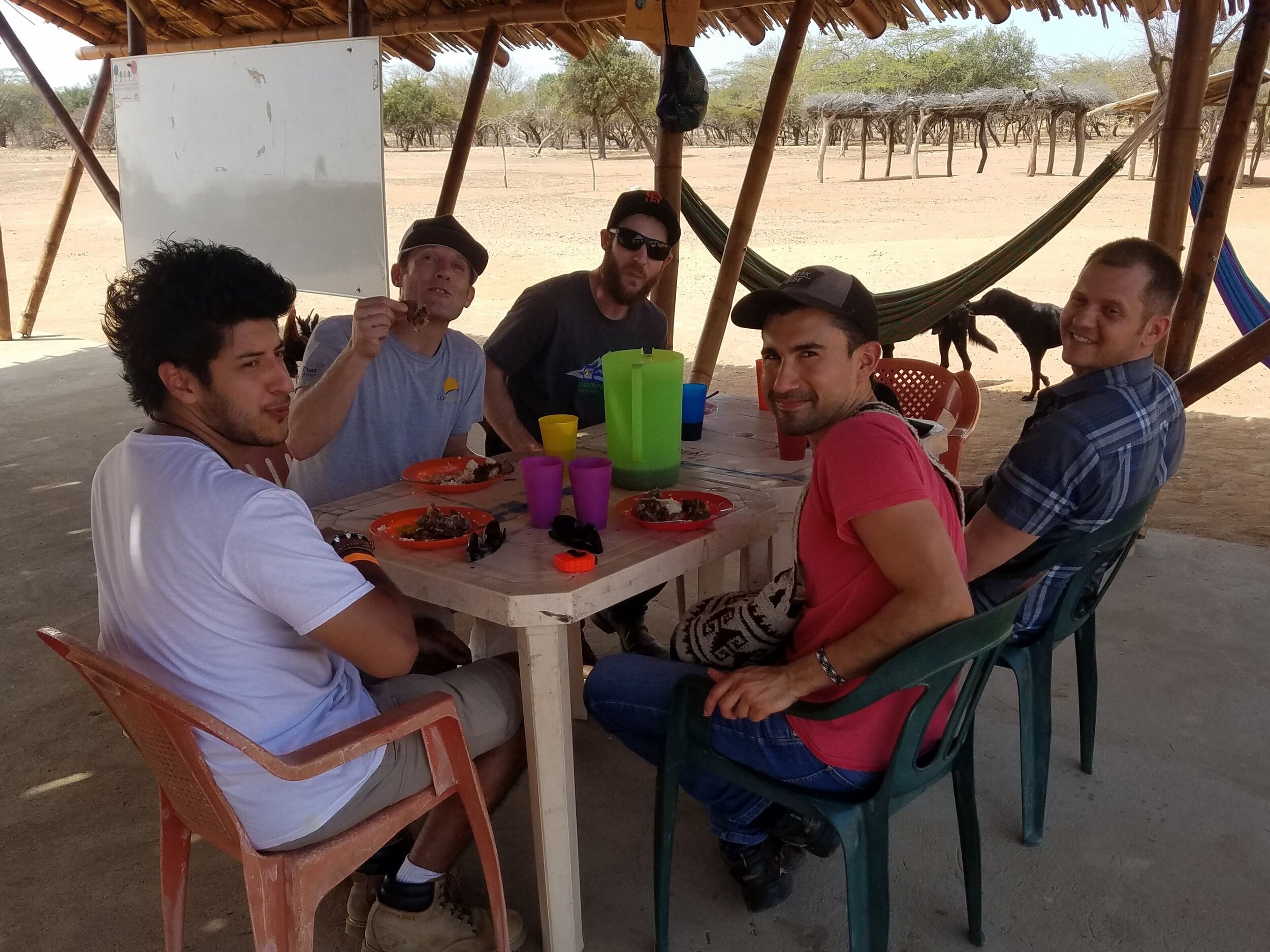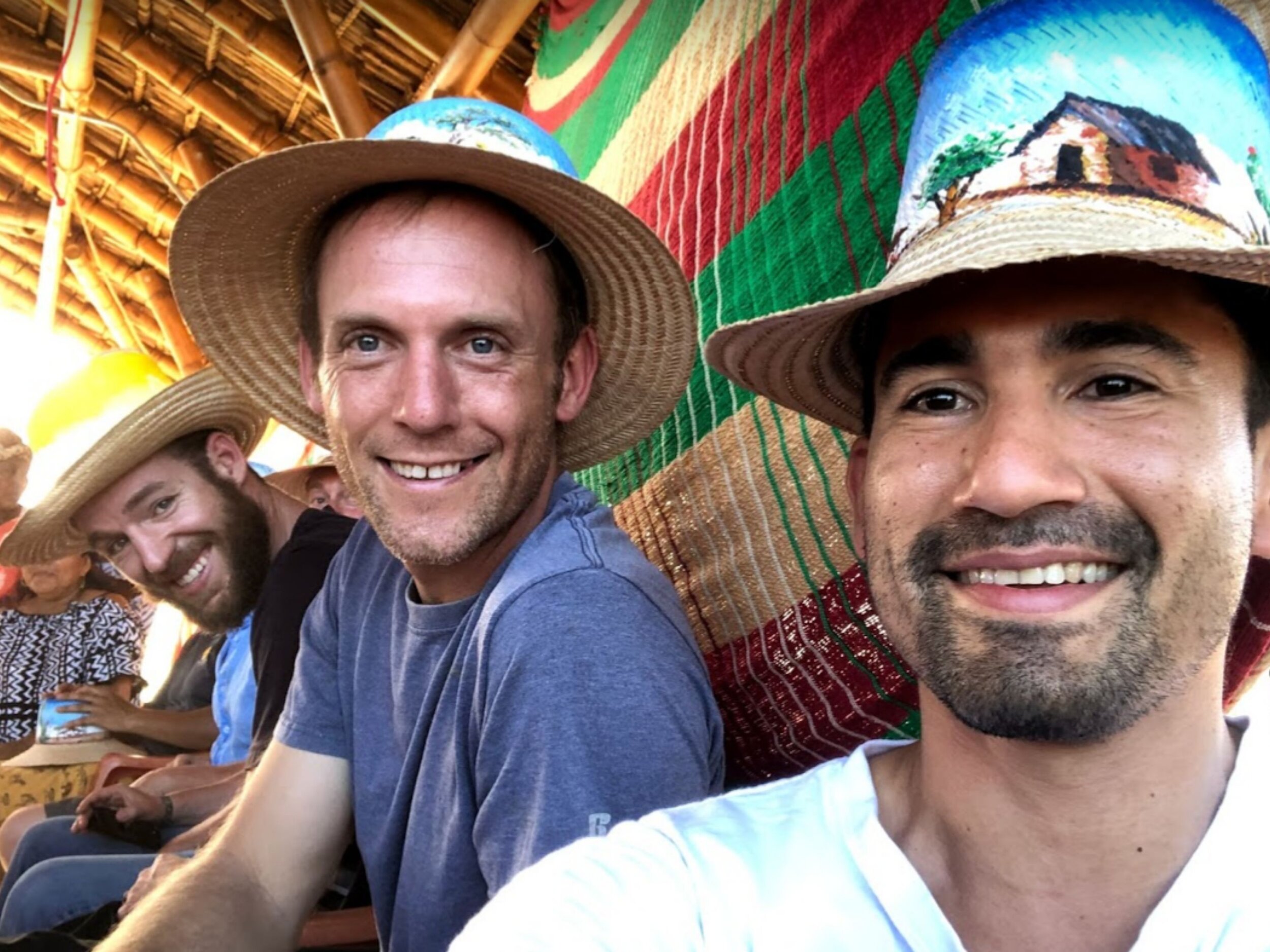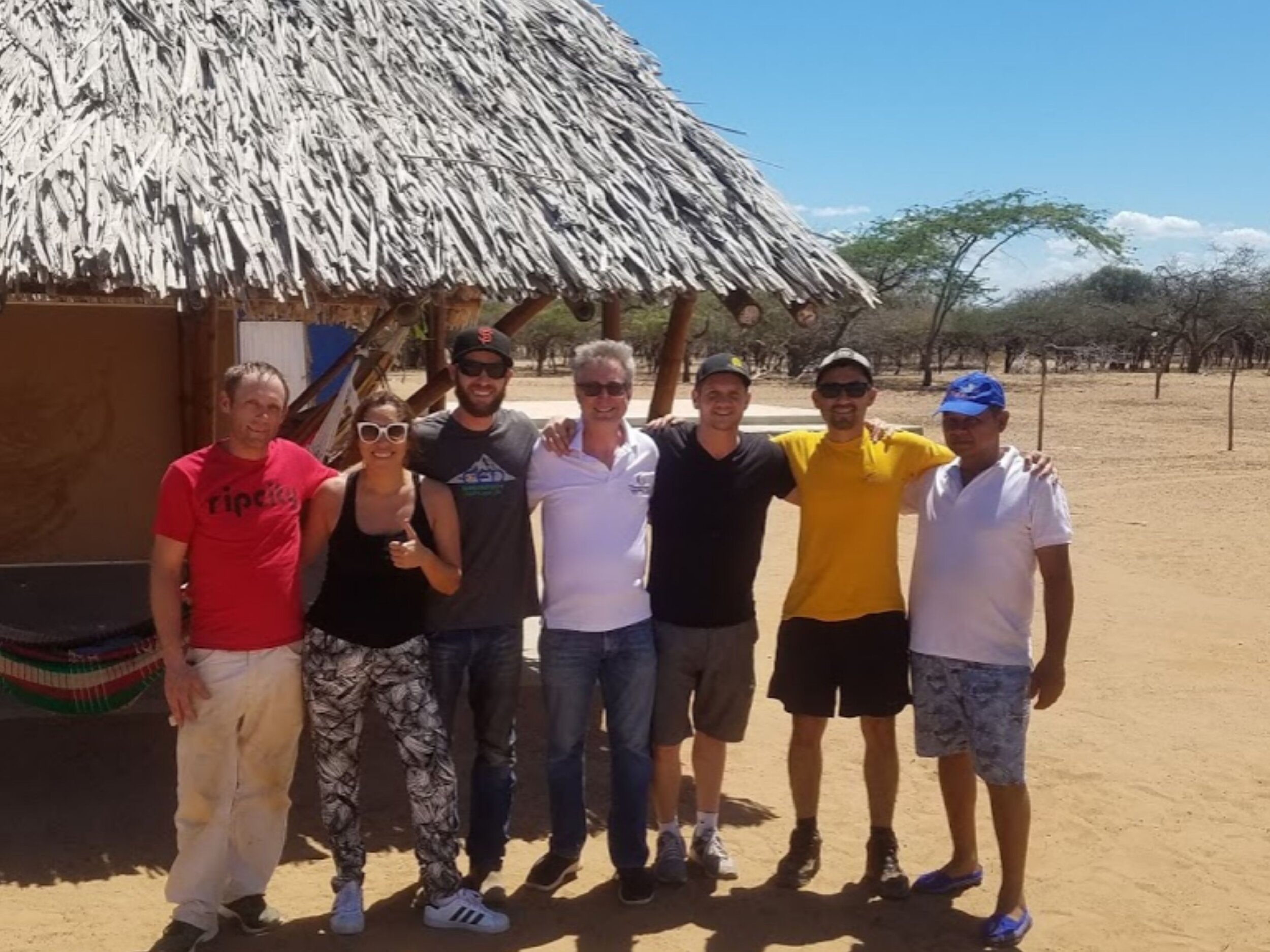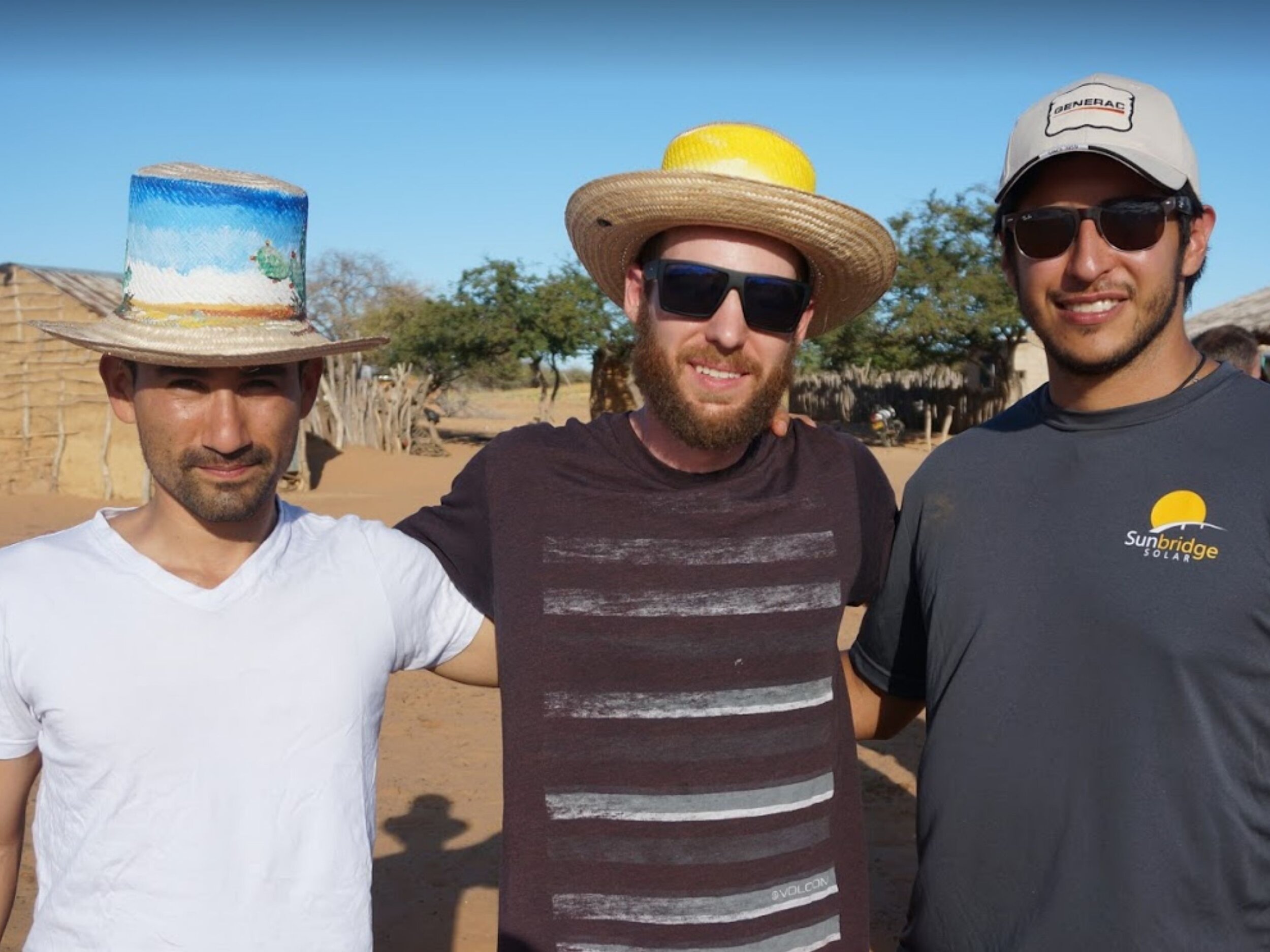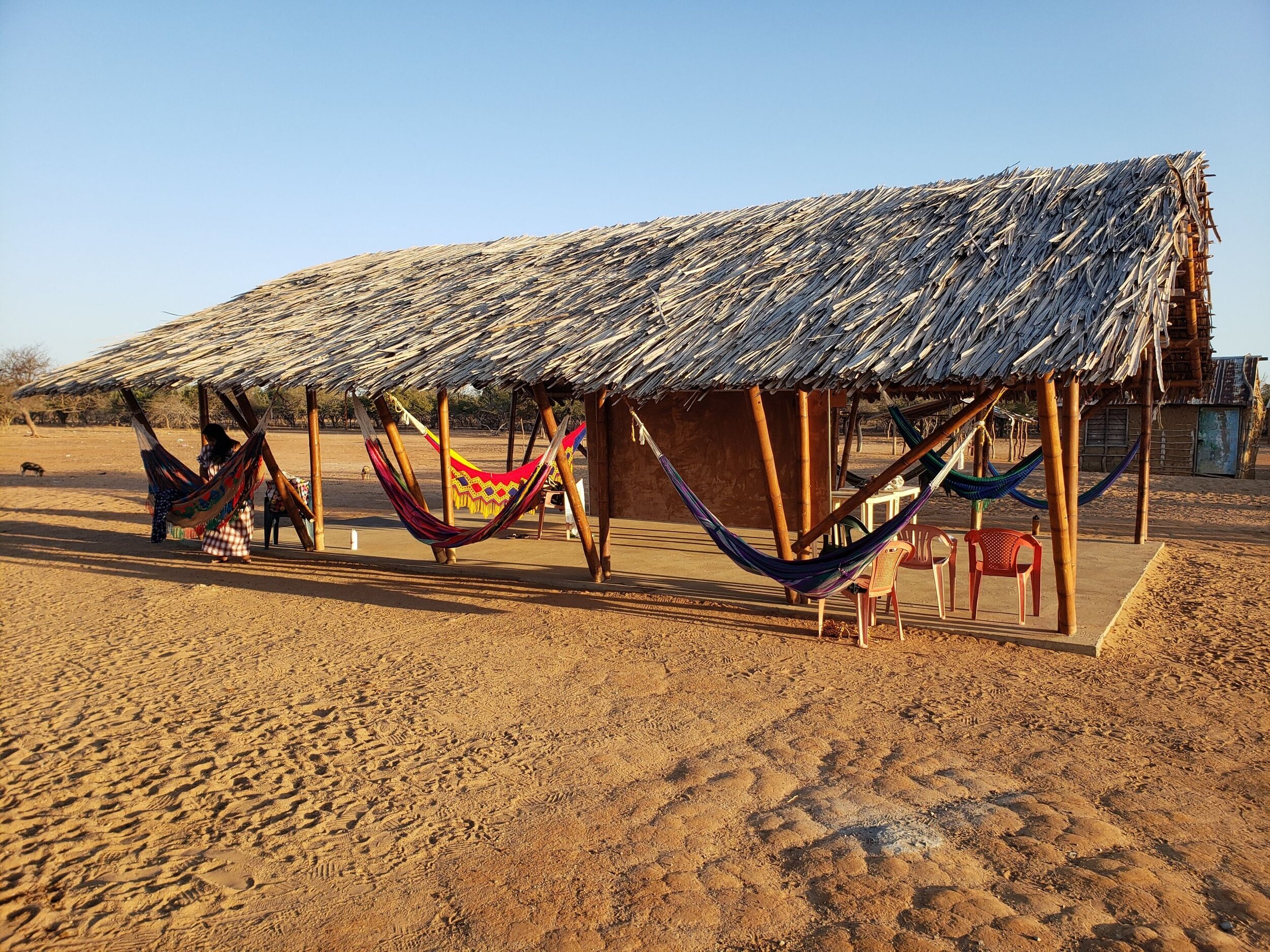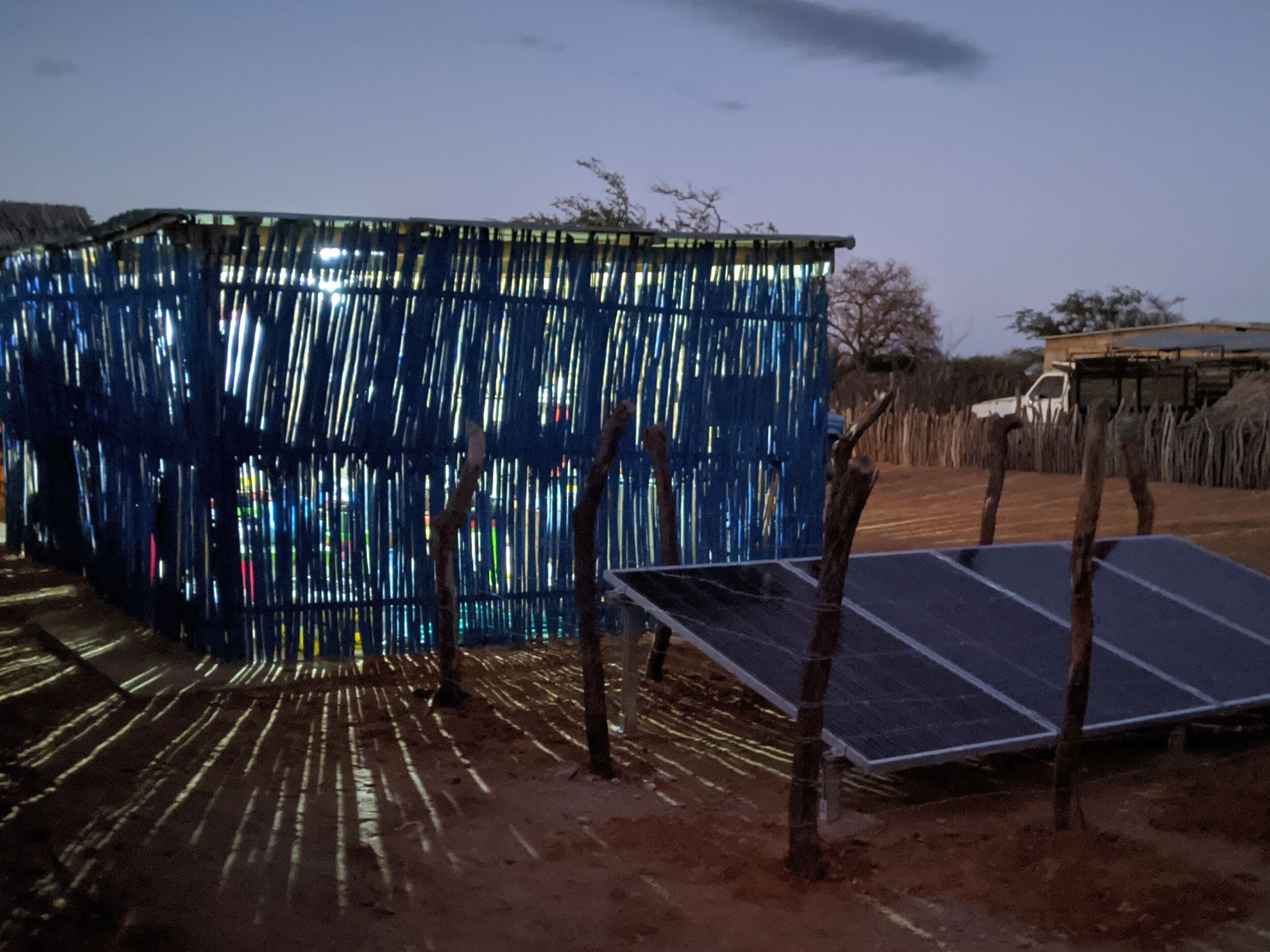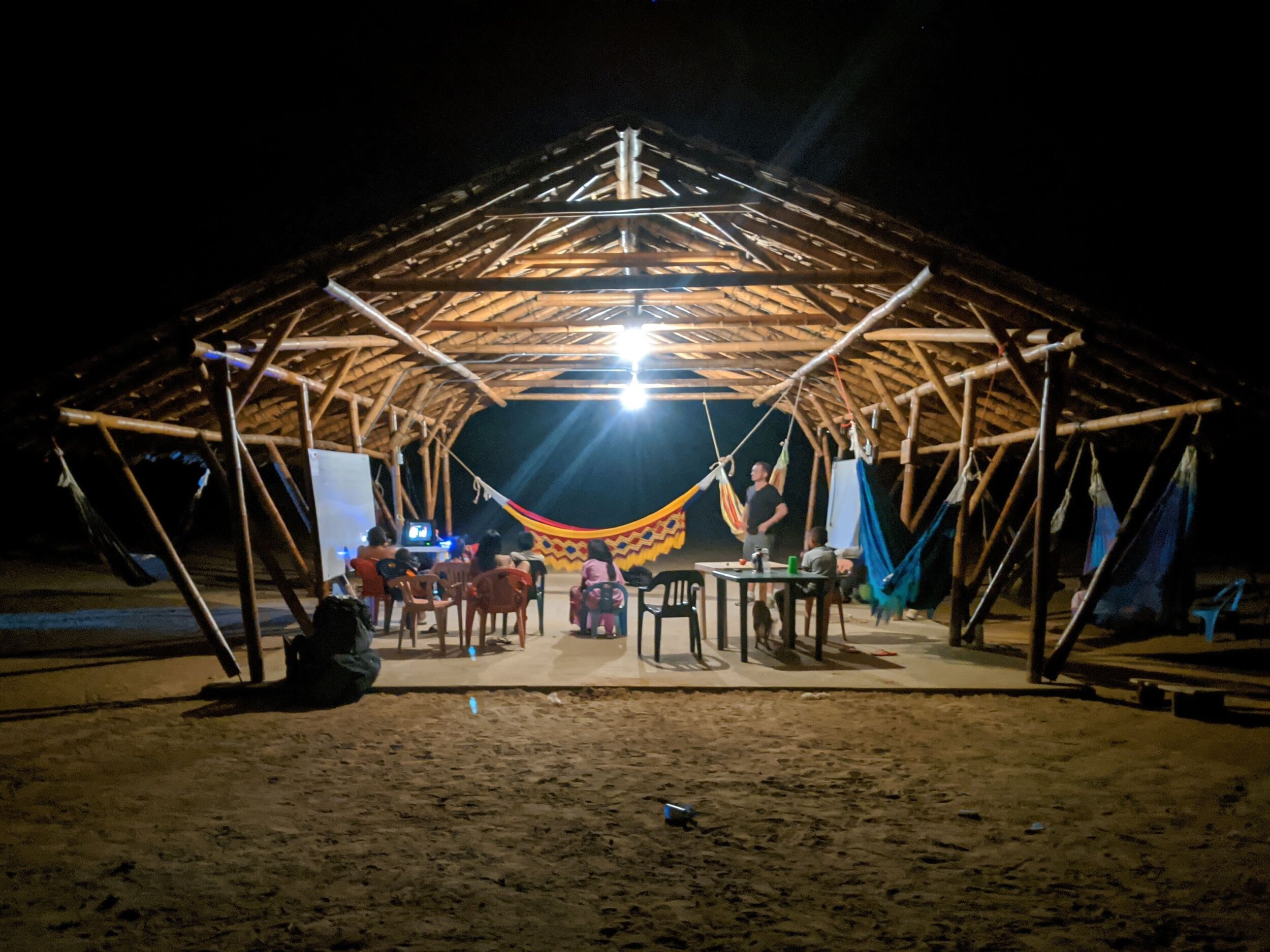Sunbridge Helps Electrify Rural Off-Grid Schools
On March 11, 2020, three members of Sunbridge Solar departed for Bogota, Colombia, to take part in our third solar project in three years. It has become somewhat of an annual tradition for our company.
The members of the team noted how strange it was leaving in the US just as the Coronavirus outbreak was starting. "We didn't realize it would escalate so quickly in the US at that time, and we had this humanitarian trip planned for over a year."
Electrifying Rural Off-Grid Schools
Jordan Weisman, owner of Sunbridge Solar, along with senior installers Matthew Brooks and Jesse Jensen, formed the Sunbridge team for this trip. The team reached Bogota on the evening of March 11, and the following morning returned to the airport for a flight to Riohacha located in the far north of Colombia. This year's project was in a region of Colombia called La Guajira.
The first night using renewable solar energy to power their off-grid schools at the village of the Fucai people in Colombia.
La Guajira is an arid region that shares a border with Venezuela. What makes this region unique is the indigenous Wayuu population, who are the principal inhabitants. There are approximately 150,000 Wayuu in Colombia, which represents 20% of the overall Colombian indigenous population. The Wayuu have their language called Wayuunaiki, and many Wayuu speak this primary language and do not speak Spanish. The Wayuu are known for their incredible woven baskets, handbags, and mochilas, a kind of hammock.
Partnering With Local Colombia Groups
We partnered with several organizations for this project. Primarily, the project was put together by Natalia Gomez, founder of Light for Education, whose mission is to bring power to the many off-grid schools of Colombia. Fucai, a local NGO that works to support the Wayuu communities in La Guajira by providing resources for education, water, and sanitation.
The representatives from Fucai were instrumental in the project as they were able to communicate in both Wayuunaiki and Spanish, which was critical for the project's success.
Two volunteers at Sunbridge Solar digging a trench for electrical conduits by hand in La Guajira. Source: Sunbridge Solar
Local Help from Portland’s Pearl Rotary Club
The trip was also partially funded through the help of the Portland Pearl Rotary Club, whose funds went to the materials for the solar system, which was designed to power lights and receptacles in each of the classrooms and a larger community meeting room along with a refrigerator for the kitchen.
Installing the Solar Energy Sytem
For project construction, we worked alongside several local Wayuu as well as Edwin Lasso, a solar technician from Bogota who has been our partner on all three Colombia solar projects, and Luis Felipe, who has been working as an intern for Light for Education.
We were able to assemble the array, battery, and inverter within about two days, and the remaining two days we spent working on wiring all the AC loads in the various school rooms.
When we turned the system on and plugged in the refrigerator for the first time, that's when the excitement started. Living in a hot desert environment, having access to refrigeration for the first time is a game-changer.
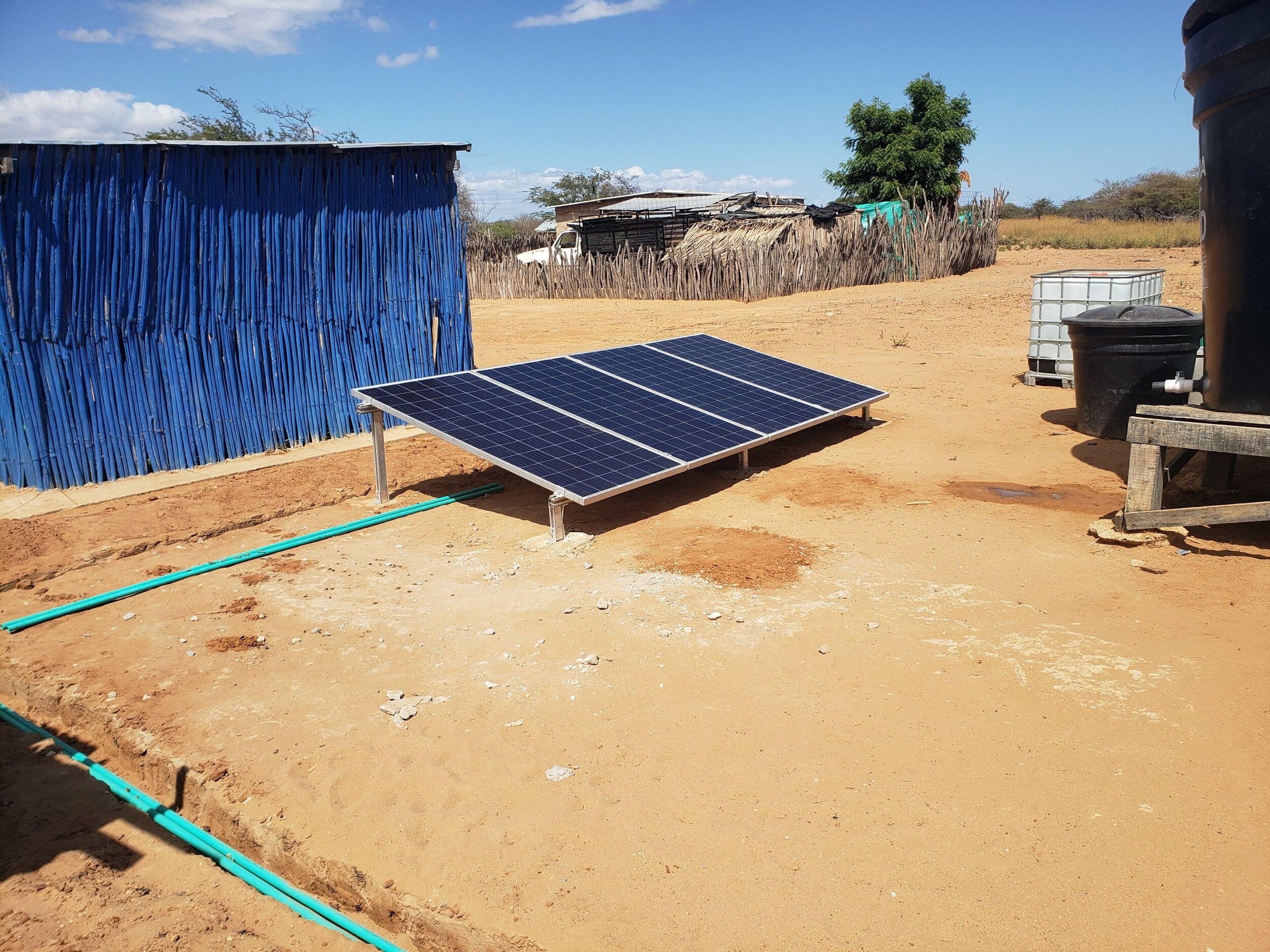
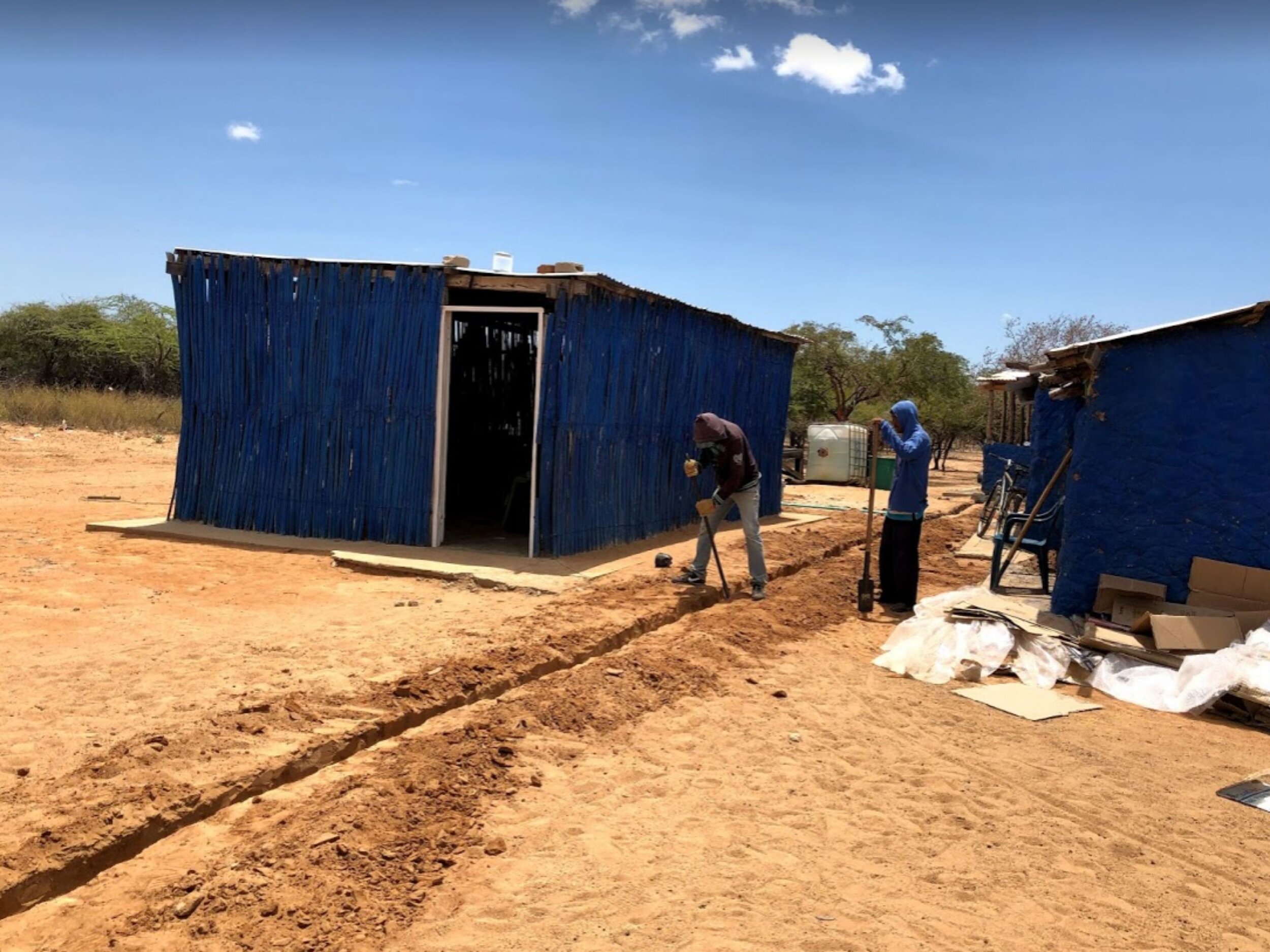




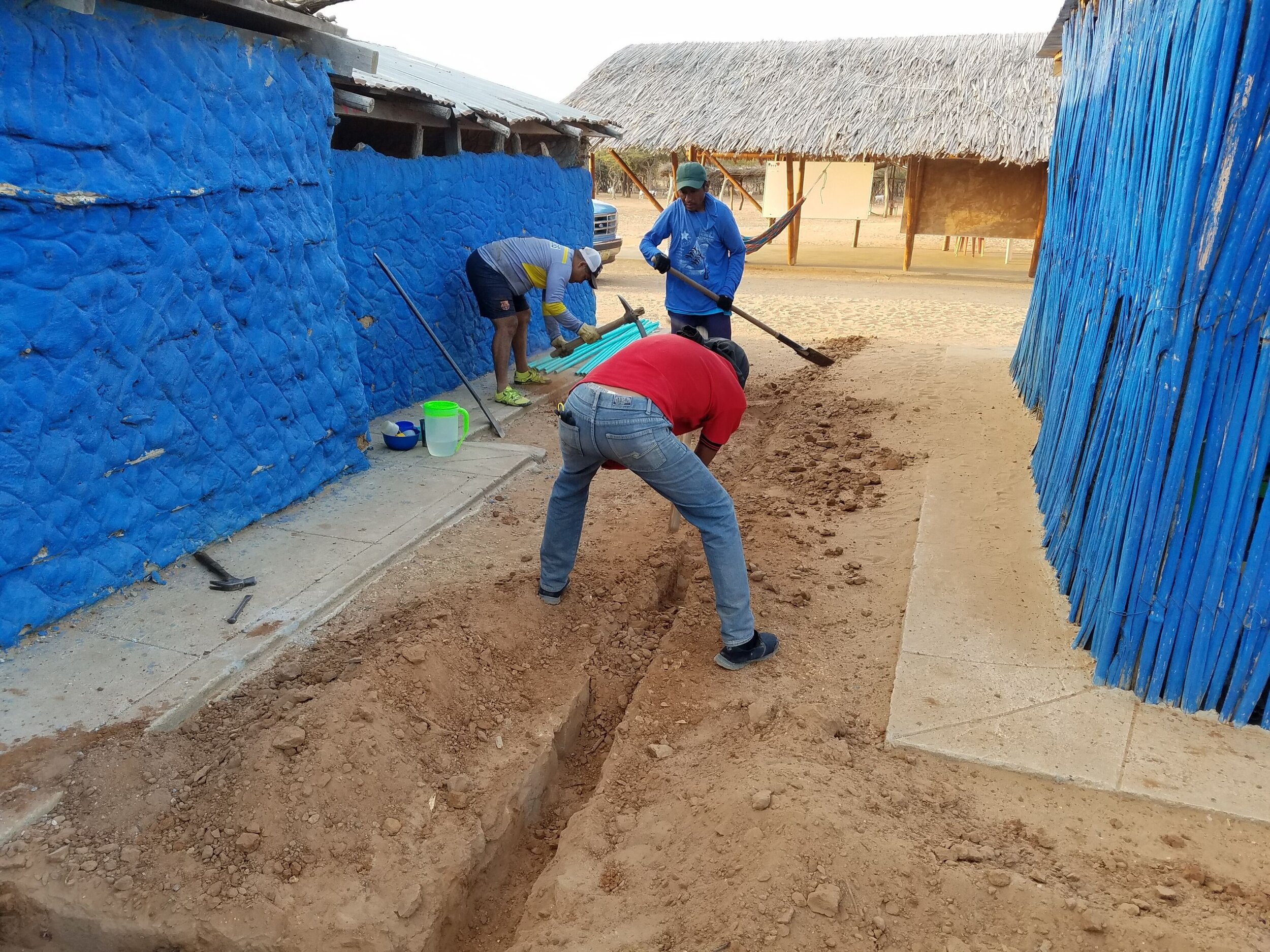
Celebrating Success With The Locals
We were able to complete our project on time and also share in a fantastic celebration with the local community; all of the kids came with their teachers. They demonstrated some traditional Wayuu dances, and the community christened the ceremony with three goats to feed all the hungry people.
It was indeed a privilege to be able to stay with the Wayuu for four days, share meals with them (although the goat was a bit tough to stomach), and sleep under the star-filled skies in our mochilas every night.
Sometimes these projects are less about the actual solar technology and access to power. Instead, they are more about connecting with people from different backgrounds and cultures, sharing food and stories, and embracing the feeling that we are all linked together on this planet. We must all work to help each other!
